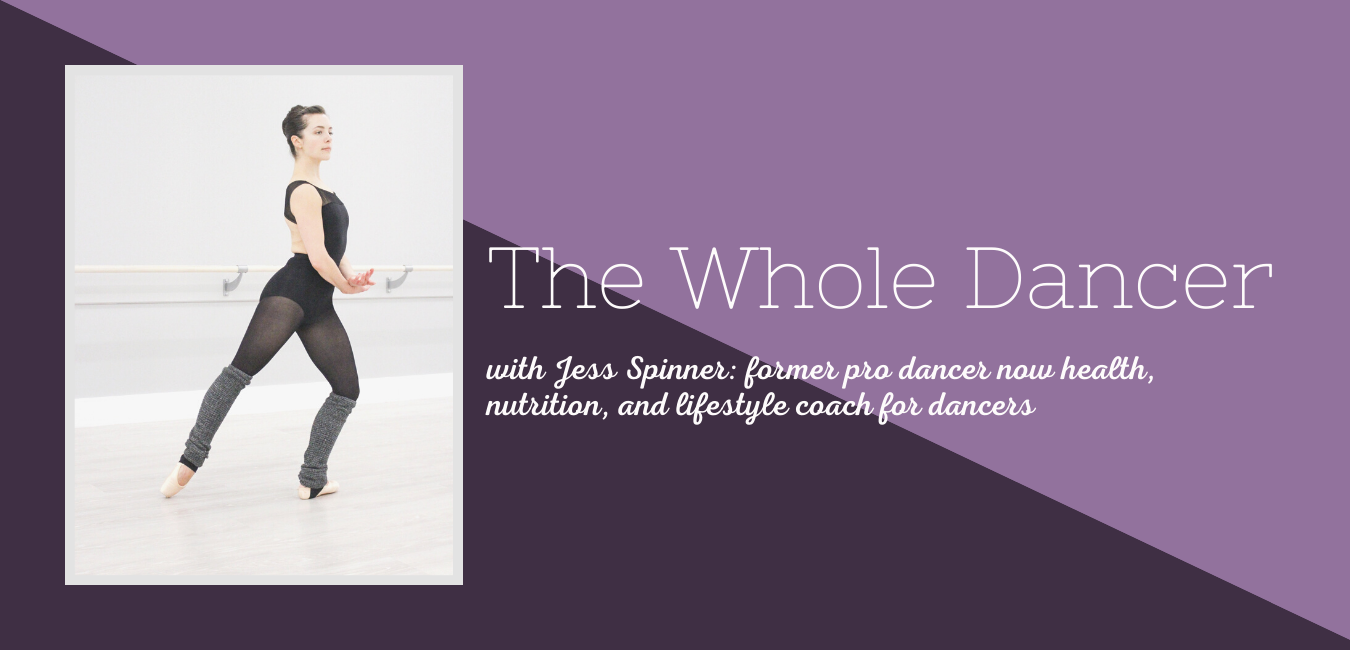The short answer is maybe.
It’s not ideal, but you might find yourself dancing in an environment that’s not super supportive or, on the extreme end, is truly toxic. Unfortunately, we can’t always know before getting there whether an environment will be good for us.
It’s also easy to be blinded by big-name schools or teachers and to convince yourself that training with them will be worth any potential pain or struggle.

Dancing in toxicity.
Let’s say you’re there. You’ve started training somewhere new and little by little you start to see some red flags. Teachers give corrections harshly or in a belittling manner. Maybe they’re making blatant body-shaming comments.
Sometimes the environment among the dancers is actually the most challenging part. Perhaps, dancers are making hurtful comments to one another or questioning each other’s food choices.
As recent stories have brought to light some truly shameful actions at some big schools around the globe, maybe you’re questioning the places you’re dancing.
Surviving a toxic dance culture.
You can survive, but the resulting wounds and impact on your mental health can cut deep. It can lead you to a place where you hate this thing you used to love. Sometimes, you feel like you have to fight to survive. Living in survival mode might lead you to cope with the struggles by restricting food or harming yourself.
If you find that your mental health is being impacted, it’s time to get out. As quickly as possible, look for an exit strategy. If you’re in a training program, talk with your parents about coming home and exploring other training options. If you’re dancing professionally, you might need to break your contract. It might feel extreme, but there are times staying in a toxic environment will cause much more damage than it’s worth, even if it means having a gap in employment.
Your dance experience will shift seismically when your top priority becomes supporting your own health and well-being. When a dancer says to me, “I’ve realized my health is the most important thing,” that feels like a winning day.
Thriving in a toxic dance culture.
If you’re well enough to stay in a toxic dance culture, you have to look for ways to proactively support yourself.
Focus on what you can control.
You can’t control how the teachers or artistic staff choose to run the school or company where you find yourself. Any pre-existing culture among the dancers is also out of your control. It’s up to you how you show up and what you engage with.
You also have the power to give their toxic words or actions weight or to ignore them and do your best to move on. I’m not saying this is easy, but with work and practice it is possible. Their opinions do not define your worth.
.
Build your self-awareness.
When we find ourselves in challenging situations, a potential response is to shut down or to ignore the big feelings that might be trying to surface. Rather than hiding from what your mind or body is trying to tell you, lean in.
You’re receiving messages about what you can and can’t tolerate and you’re honing your ability to listen to and follow your intuition. Self-awareness is a golden and often ignored part of building a balanced food relationship, feeling at home in your body, and prioritizing your well-being in every facet of life.
Seek support.
Trying to thrive through toxicity alone can feel impossible at times. Working with a therapist or a coach who understands the dance world can be totally game changing. You’ll not only have the opportunity to talk through and process your experiences, but you’ll have support around how to react to the situation.
You’ll gain tools and strategies to protect your mental well-being, and you’ll have accountability to ensure you’re still caring for yourself — mind, body, and spirit.
Set boundaries for your safety and well-being.
If you’re making the choice to stay in a toxic environment, you can and should still have boundaries. Part of boundary setting might mean pushing yourself out of your comfort zone and speaking out when you see an injustice occur or when something happens to you directly.
If you’re a minor, you might report an incident to other staff members at the school or to your parents. In extreme cases where threats are made or your physical safety is compromised, you might involve the authorities. If you’re at the professional level, speak with human resources, administrative staff, or others. Make sure these situations are documented via email and in writing
Look for an exit strategy.
Can you thrive in a toxic dance environment? Maybe. However, it shouldn’t be a long-term thing. Start actively and seriously looking for other options and commit to exploring them as soon as possible.
You should not stay in an environment that may be causing you damage even if you’re not fully conscious of it at the moment. There are supportive dance environments and places that will be a healthy fit for you and your needs. It may take a couple of tries to find those places, but it’s a very worthy endeavor.
If you’re in a toxic dance environment and you’re struggling, seek support. Set up a coaching consultation call here to see if coaching is a good fit for your needs.

Reading through this felt so supportive of the decision I made to take a big step back from the fulltime dance environment. I started when I was 6 and trained everyday until I was 22. Like many, I had my mixed bag of teachers, whether it be supportive, abusive, or neutral.
The aspect of worrying about being judged by my peers based on the food I’m eating was such a significant issue for me for so many years that it resulted in my not eating until the end of the day. I didn’t give my body any of the required energy it needed for dancing. Unfortunately, even when I find myself doing a brief amount of time with a company or intensive, I still find myself trying to “hide” what I brought for lunch because it may not be what is deemed “healthy” by others. Something to continue working on.
Your section on seeking support was something I wish I knew I could have done earlier instead of trying to battle these demons alone. My brain was never told by anyone in my training environments that seeking outside support was an appropriate option.
This was a very reassuring read.
Thanks for a great blog and for drawing attention of a problem that a lot of professional dancers have to face it every day because of the toxic environment. But if that situation is being to make visible, why there are schools and professional ballets that continue follow these behavior? It would be better to mention one personal friend example to understand what I’m saying.
One of my best friends study in a internacional school of ballet, and the experience hasn’t been good at all. There are a lot of competition between classmates, it’s very common the eating disorders, and other sickness. And of course, teachers usually don’t support them when they feel bad. The perfection around the ballet of course affect their well-being and their mental health. My friend has had to go to a therapist because the emotional exhaustion was bigger than her dream to become in a professional dancer.
What can they do to change that kind of behavior and environment? I think the first step is to recognize the problem, because sometimes they try to hide it. And also, as a society, we have to me more open in order to talking about these controversial topics.